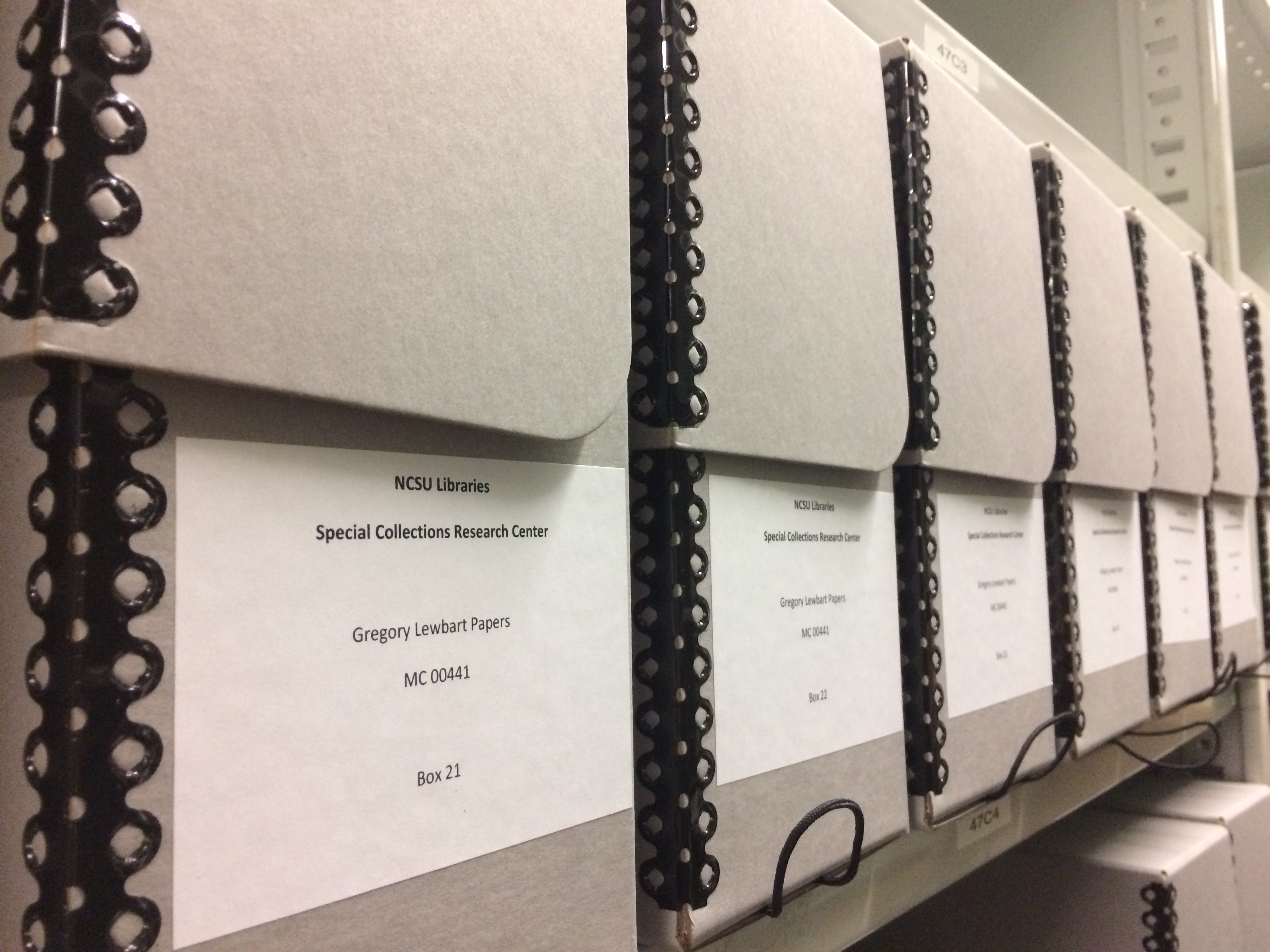
Guides to Two New Veterinary Medicine Collections Published
Blog post contributed by Jessica Serrao and Taylor de Klerk, Library Associates
NC State University boasts a top ranked College of Veterinary Medicine, and the Special Collections Research Center is excited to improve access to two collections that highlight the university’s emphasis on veterinary education and research. The Gregory A. Lewbart Papers and the William Medway Papers now have new online finding aids to help you navigate the professional and research files of these two prominent veterinarians.
Gregory Lewbart is a veterinarian of aquatic animals and terrestrial invertebrates and reptiles. His research interests include zoological medicine, infectious diseases, and public health. Lewbart joined the faculty of the North Carolina State University College of Veterinary Medicine (CVM) as Professor of Aquatic Animal Medicine in 1993. In 2016, he became the Assistant Department Head for the CVM’s Department of Clinical Sciences.
In 2012, Lewbart received the “William Medway Award for Excellence in Teaching” from the International Association for Aquatic Animal Medicine (IAAAM). Medway, a founding member and former president of IAAAM, was an influential researcher and instructor in veterinary clinical pathology and aquatic mammal medicine at the University of Pennsylvania School of Veterinary Medicine. Throughout his career, Dr. Medway contributed influential veterinary research on dolphins, manatees, and whales. Lewbart studied under Medway while at Penn as a veterinary student of marine mammal medicine.
The Gregory A. Lewbart Papers is mostly comprised of materials from his time at North Carolina State University’s College of Veterinary Medicine and his work and leadership in the national and international veterinary community. Some material pertains to his education at the University of Pennsylvania and prior work experience in Florida.
The William Medway Papers includes photographic slides, veterinary clinical reports, administrative documentation from the International Association for Aquatic Animal Medicine (IAAAM), and publications by Medway (as an individual and as a collaborator with other veterinary professionals). Dr. Medway was a founding member of IAAAM and served as its president from 1974 until 1975. IAAAM is a society of professionals and students focusing on aquatic animal medicine. Dr. Lewbart is also actively involved in IAAAM, and he served as its president in the mid-1990s. His collection contains materials from sixteen of their annual conferences, administrative organizational papers, and newsletters.

A significant portion of Lewbart’s collection is clinical case files. These files are organized according to his original numbering scheme that is based on the year in which the case opened, and then numbered consecutively by occurrence (ex: 1999-005, 1999-006, 1999-007). There are records for hundreds of patients, most of which include diagnoses, reports, clinical instructions, and other documentation. One fun aspect of processing this collection was seeing the unique animal names in these files. For example, Dr. Lewbart treated a yellow-bellied slider named “Dragster,” a goldfish named “Tulip,” a loggerhead turtle named “Stumpy,” a salamander named “Doo Doo,” and an iguana named “Piggy.”
Many of the clinical case files have corresponding photographs as visual documentation of the medical procedures. These photos (in both Lewbart’s and Medway’s collections) are not for the squeamish, including a significant number of photos in both collections from their research activities. Among other things, Dr. Lewbart conducted research on algal infections in horseshoe crabs (Limulus polyphemus) and there is a large quantity of photos of microscope slides that show the evolution of different infections.


Additionally, Lewbart has a special interest in turtles, and is a faculty advisor for CVM’s Turtle Rescue Team. The team is part of the Wildlife, Avian, Aquatic, and Zoological Medicine student organization and it aims to release healthy and rehabilitated turtles into the wild after providing medical, surgical, and/or husbandry services. Education about wildlife and ecosystems is also one of the organization’s main goals. Their papers are housed in University Archives; more information can be found in the team’s finding aid.
For more information about the Gregory A. Lewbart Papers and the William Medway Papers, please consult the collection guides online. To learn more about finding and using archival collections at NCSU, please visit our website. You can also search directly within our collection guides or browse a list of our collections for more. If you have any questions about how to find or use the collections, as always, contact us! We are here to help you find what you need.
References
“Dr. William Medway Honored,” Bellwether Magazine 1, no. 31 (Summer/Fall 1991), http://repository.upenn.edu/cgi/viewcontent.cgi?article=1591&context=bellwether. Accessed 3 April 2017.
Sam H. Ridgway, “History of Veterinary Medicine and Marine Mammals: A Personal Perspective,” Aquatic Mammals 34, no. 3 (2008): 471-513, accessed 3 April 2017, https://www.aquaticmammalsjournal.org/attachments/article/376/Ridgway.pdf.